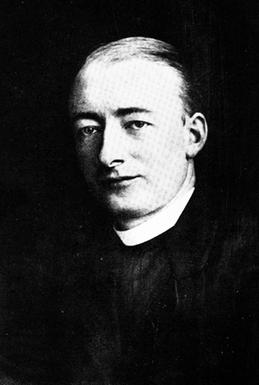WHY WRITE THIS ARTICLE?
As you can see, we're already showing our cards a bit with the title of this article: "Paedobaptists on the Biblical Silence for Paedobaptism." You're likely wondering what point we're trying to get across in this article. To help clarify things, we are not trying to argue or point out the following:
1. We are not arguing that there are no Paedobaptists who think the Bible is extremely explicit or clear that infant baptism is a correct practice. Many books have attempted to make the biblical case for Paedobaptism, including Strawbridge's "The Case for Covenental Infant Baptism", Stott's "The Anglican Evangelical Doctrine of Infant Baptism", Baxter's "Plain Scripture Proof of Infant Church Membership and Baptism", and many others. Certainly, some may conclude that the Bible is crystal clear on the matter and that there’s no silence at all. The sources which will be shown are certainly not emblematic of all Paedobaptists.
2. We are not arguing that the Paedobaptists who will be cited in this article think there are no biblical arguments for infant baptism. They all think the practice is biblical for various reasons which we will look at later.
3. We are not arguing that silence on a matter is inherently a defeater that cannot be overcome.
However, what we are trying to point out and address is the following:
1. That sometimes it's helpful to step back from the polemical debates and see what is said from one perspective when their theologians and scholars speak candidly and honestly about the relevant data. This does not necessitate that they are correct. However, it does help shed light on the true nature of a given issue, which helps clarify potential strengths and weaknesses of a given perspective. We have done this previously on our blog, when we analyzed theologians and historians on the historical development of Paedobaptism. In that article, we noticed a vast difference between how Paedobaptists speak about the development of the doctrine in a polemic context of making a case for the doctrine versus how they speak when covering the development of the doctrine outside of an apologetic environment, and are instead simply interpreting the historical data for themselves.
2. When speaking candidly, many Paedobaptist theologians readily acknowledge that there is no explicit New Testament verse either mentioning or commanding the baptism of infants. They convey that the Bible is silent on this. Some go as far as saying the pattern in the New Testament seems like Credobaptism is the rule, or that if we just look at the New Testament, the Credobaptist view has the stronger case.
3. With the second point in view, we also want to take a look at what Paedobaptists make of this silence and how they argue for the doctrine of infant baptism in light of it. This will help us understand which inferences and arguments are most critical for establishing Paedobaptism amid the New Testament's silence or lack of explicit clarity, as stated by the following sources.
The following sources include Paedobaptists from various denominations and theological traditions across the last four centuries.
PAEDOBAPTISTS ON THE BIBLICAL SILENCE FOR PAEDOBAPTISM
“And among all the persons that are recorded as baptized by the Apostles, there is no express mention of any infant;” - Wall, The History of Infant Baptism, Preface V
“Though it is acknowledged. That we do not meet with any instance in the earliest primitive antiquity, in which the baptism of any child of Christian parents, whether infant or adult, is expressly mentioned, — yet it is certain that Christians in general have always been spoken of, by the most ancient fathers, as baptized persons; — and the apostles, when writing to Christian churches, planted many years before the date of their respective epistles, argue with the members of them from the obligation which their baptism brought upon them in such a manner as would lead us to conclude that they were baptized in their own persons; and it is also certain that, as far as our knowledge of primitive antiquity reaches, no unbaptizcd person received the Lord's supper;” - Doddridge, Miscellaneous Works, Lecture CCI, Scholium 2
“All traces of infant baptism which one will find in the New Testament must first be put into it,” - Schleiermacher, Christian Faith, Volume II, p. 283
“True, the New Testament contains no express command to baptize infants; such a command would not agree with the free spirit of the gospel.” - Schaff, History of the Christian Church, Volume 1, Chapter 9, Section 54
“Hitherto we have spoken of the ordinance on the supposition that the baptized person is an adult, capable of repentance and faith. For there can be no doubt that it is adults who are immediately in view in the New Testament references to the sacrament. Whether infant baptism was practised by the apostles or not, at all events it is adult baptism that directly meets us in the Acts, and adult baptism also that serves as the type for the doctrinal utterances of the Epistles.” - Lambert, The Sacraments in the New Testament, p. 193“When we pass to the history and teaching of the apostles, the evidence certainly appears to be unfavourable to the view that from the first they practised and enjoined the baptism of little children.” - Lambert, The Sacraments in the New Testament, p. 196“There is no plain sign, therefore, of infant baptism, so far as we can discover, in the earliest days of the Jerusalem Church. But what is far more significant is, that no positive evidence of the practice is to be found even in the later days of apostolic history. In this respect there is no difference between the evidence which comes from Paul's Epistles, together with the record of his preaching in Acts, and the evidence presented by the rest of the New Testament.” - Lambert, The Sacraments in the New Testament, p. 198“None the less, it is impossible to shake off the impression of the fact that the New Testament contains no direct reference, whether historical or doctrinal, to the practice of infant baptism.” - Lambert, The Sacraments in the New Testament, p. 201
Lambert is quite emphatic that in the New Testament and apostolic times, there is no positive evidence for infant baptism and that infants aren't in immediate view when the Bible speaks of the sacrament.
“Looking at the matter in the broad light of Christian history, we seem to be abundantly justified in holding that infant baptism is not only a seemly and a beautiful rite, but one that rests firmly upon a scriptural foundation.” - Lambert, The Sacraments in the New Testament, p. 213
Even with these concessions, we see a few pages later in the same book where Lambert clarifies that he still sees infant baptism as a practice that rests firmly upon the foundation of scripture.
“THIS chapter is not mine. My colleague Professor Andrews has recently written in the Expositor, and (with its editor’s courteous consent) has most kindly let me include here one of the most valuable of recent articles on the sacraments…With this evidence before us, it seems very hard to resist the conclusion (however little we may like it) that if the Epistles of St Paul do not enunciate the ecclesiastical doctrine of Baptismal Regeneration, they at any rate approximate very closely to it—with this difference, of course, that there is no shred of real proof that baptism was ever administered to infants in the Apostolic age.” - H.T. Andrews, cited by Forsyth in, Lectures on the Church and the Sacraments, Part II, Chapter VIII
“There is no infant baptism in the New Testament. It is within the principle of the Gospel, but not in the New Testament use. It is so in every mission. And Christianity began as a mission.” - Forsyth, Lectures on the Church and Sacraments, p. 168
“It is true that there is no express command to baptize infants in the New Testament, no express record of the baptism of infants, and no passages so stringently implying it that we must infer from them that infants were baptized.” - Warfield, The Works of B.B. Warfield, p. 1775
“It should ever be borne in mind that the language of the New Testament, which describes the blessings associated with and pledged in Baptism, refers to adults and not to unconscious children, and it is only by necessary accommodation and modification that we can use the same language of the latter. This modification is sometimes called the language of charitable or loving assumption, for the child is rightly assumed to be, and is afterwards taught to regard itself as, within the covenant of grace by reason of the faith and prayer of those who bring him to Baptism. This faith and hope is the special mark of our Baptismal Service.” - Griffith Thomas, The Catholic Faith, p. 288
“The practice of infant baptism is not demonstrable in the Apostolic and post-Apostolic age. It is true that we hear frequently of the baptism of whole households, e.g. Acts 16.15, 32 f., 18.8, 1 Cor. 1.16. But the last passage taken in conjunction with 1 Cor. 7.14 does not tell in favor of the view that infant baptism was usual at that time time.” - Feine, Real Encyclopedia for Protestant Theology and Church, Volume 19, p. 403
"Whether infants were baptized in the apostolic age, we have no means of determining. Where the original idea of baptism as a baptism of repentance, or where Paul's profound conception of it as a symbol of the death and resurrection of the believer with Christ prevailed, the practice would not be likely to arise." - McGiffort, A History of Christianity in the Apostolic Age, p. 543
“The two gravest objections to Infant Baptism are these. First, it is held, Infant Baptism is not enjoined in the New Testament, nor is there any New Testament record of its prevalence…No answer is possible to the first objection except to admit it frankly. There is no evidence, for example, that the household of the Philippine jailer included young children. The passage dealing with mixed marriages in 1 Corinthians (vii. 12-16) plainly indicates that in the Apostolic Age it had not occurred to any of the religious leaders that children should be baptized even when the father or mother was a Christian.” - Mackintosh, The Expositor, Volume XIII, Thoughts on Infant Baptism, p. 194-195
“That along with this change of perspective should go minor changes, was but natural. And to such modifications both the rites since called Sacraments bear witness. Infant baptism is not an Apostolic usage. It is not only that there is no trace of it in the first century : but the very idea of baptism then universal, namely as a rite of faith's self-consecration (often outwardly ratified by manifestations of the Spirit), is inconsistent therewith.” - Bartlet, The Apostolic Age, p. 472
“As we have pointed out in the text and elsewhere, the New Testament references to Initiation assume that its recipients are adults, and that the dispositions required in them are those of conscious and deliberate renunciation of sin and idols, and of personal faith in and allegiance to Christ.” - Williams, The Ideas of the Fall and of Original Sin, p. 550
“It may be said at the outset that there is no explicit command in the Bible to baptize children, and that there is not a single instance in which we are plainly told that children were baptized. But this does not necessarily make infant baptism un-Biblical…As was pointed out in the preceding, the New Testament contains no direct evidence for the practice of infant baptism in the days of the apostles.” - Berkhof, Systematic Theology, p. 701-702
“While the possibility that infant baptism was practised in the apostolic age cannot be excluded, baptism upon personal profession of faith is the most clearly attested pattern in the New Testament documents.” - Baptism, Eucharist and Ministry, Faith and Order Paper, 111, p. 3
“It may be said quite frankly that so long as we keep to the New Testament alone and ignore the Old Testament it is impossible to prove this doctrine [speaking of infant baptism].” - Colquhoun, Is Infant Baptism Scriptural?, p. 9
J. Robert Nelson, 1920 AD - 2004 AD
“That the New Testament says nothing explicitly about the baptizing of little children is incontestable,” - Nelson, The Realm of Redemption, p. 129
“It is not clear whether the early church baptized infants. The New Testament includes no specific references to the baptism of infants.” - McGrath, Christian Theology, p. 844
“The accounts of baptism in the New Testament deal with converts from Judaism or paganism, not the children of those who are already believers. Concerning them, there is no explicit mention of baptism, whether in infancy or later. As with the mode of baptism (see chapter 2), Scripture simply never tells us whether the proper recipients of baptism include infants or not, but there are passages that are consistent with and even suggestive of infant baptism.” - Akin, The Fathers Know Best, Chapter 40
“For the sake of this paper we will grant that neither the New Testament nor any other Christian document from the first two centuries explicitly deals with the topic of infant baptism. The question is what conclusions we can or should draw from this silence.” - Nicoletti, Infant Baptism in the First-Century Presupposition Pool, 2.3
“It’s true. There is no verse in the New Testament that commands or records an infant baptism.” - Theopolis Institute, Christians Should Baptize Their Children, but Not Because of Circumcision, para. 1
“There’s no verse that you can point to, specifically there’s no New Testament command to baptize your baby. Not only is there no New Testament command, but we don’t have any explicit examples…there’s not an unambiguous verse to find that [infant baptism]. So when we’re just talking about baptism in the New Testament, they [Credobaptists] have the strongest case.” - Reformation RedPill, A Biblical Defense of Infant Baptism. 10:45-11:19
THE ARGUMENTS IN LIGHT OF BIBLICAL SILENCE
In the previous section, we saw repeated acknowledgment from Paedobaptists that the New Testament does not clearly articulate a command, example, or evidence of infant baptism. Nevertheless, these commenters still maintain infant baptism as a biblical doctrine. In this section, we will examine some of the inferences drawn from this admitted silence, as well as the underlying reasons Paedobaptists hold to this doctrine despite the New Testament’s lack of clarity.
“The absence of any express formula enforcing the Baptism of infants in Scripture is more especially and emphatically to be regarded as no argument against the practice, but rather an argument on its side.” - Bannerman, The Church of Christ, 2:101
“The silence of the New Testament regarding the baptism of infants militates in favor of, rather than against, this practice.” - Marcel, The Biblical Doctrine of Infant Baptism, p. 191
“As I undertook to study the issue more intensely, finally taking the time to investigate thoroughly the arguments for infant baptism, I eventually came to a startling conclusion – the lack of an explicit biblical command regarding the baptism of infants was a problem not for the Reformed Christian, but for the Baptist!” - Holstrom, Infant Baptism and the Silence of the New Testament, p. 21
As these three sources demonstrate, some Paedobaptists believe the silence in the New Testament about infant baptism is a point and argument in favor of the practice. As Holstrom says, the lack of explicit texts in support of infant baptism is supposedly a problem for the Credobaptists who don't affirm the practice. So what leads these Paedobaptists to see silence in the New Testament as a positive indicator for the doctrine? Or at the least, what leads the rest to concede that the New Testament is more favorable for credobaptism, yet maintain the doctrine of infant baptism?
“But the lack of this express warrant is something far short of forbidding the rite; and if the continuity of the Church through all ages can be made good, the warrant for infant baptism is not to be sought in the New Testament but in the Old Testament, when the Church was instituted, and nothing short of an actual forbidding of it in the New Testament would warrant our omitting it now.” - Warfield, The Works of B.B. Warfield, p. 1775
“The Scriptural ground for it [infant baptism] is found in the following data: The covenant made with Abraham was primarily a spiritual covenant, though it also had a national aspect, and of this spiritual covenant circumcision was a sign and seal…This covenant is still in force and is essentially identical with the “new covenant” of the present dispensation…By the appointment of God infants shared in the benefits of the covenant, and therefore received circumcision as a sign and seal…In the new dispensation baptism is by divine authority substituted for circumcision as the initiatory sign and seal of the covenant of grace.” - Berkhof, Systematic Theology, p. 701-702
“It may be said quite frankly that so long as we keep to the New Testament alone and ignore the Old Testament it is impossible to prove this doctrine [speaking of infant baptism].” - Colquhoun, Is Infant Baptism Scriptural?, p. 9
What leads Paedobaptists to see silence in the New Testament as a positive indicator of infant baptism or still affirm the doctrine despite conceding the New Testament is favorable for credobaptism, yet maintain the doctrine of infant baptism? There are two primary arguments grounded in Old Testament interpretation that lead Paedobaptists to these conclusions. Our quote from Louis Berkhof stands in as a good summary.
Simply put, there is one covenant in redemptive history after the fall of which the Abrahamic covenant and the New covenant fall under. Circumcision was given to infants in the Abrahamic covenant, and that sign/seal has been substituted and replaced by Christian baptism. Therefore, unless explicitly stated otherwise, infants should be baptized despite silence in the New Testament regarding the practice. This covenantal unity argument and the baptism replacing circumcision argument make up the bulk of how Paedobaptists justify the concession of silence about infant baptism in the New Testament while simultaneously affirming the practice as biblical.
Now the question becomes, are these arguments valid? It's our opinion that they aren't convincing and are flawed for various reasons. As a result, the justification for affirming infant baptism while conceding the New Testament silence about the practice largely fails. We've already covered these arguments at length on our blog. You can find the articles here:
1. Examining the Covenantal Unity Argument for Paedobaptism
2. Is Infant Baptism the new Infant Circumcision?
We've also addressed the use of silence to argue in the affirmative for infant baptism with a particular emphasis on 1st century Jewish culture in this article, which you can find here:
Examining the Jewish Culture Argument for Paedobaptism
In summary, we've now looked at Paedobaptist theologians readily acknowledging that there is no explicit New Testament verse either mentioning or commanding the baptism of infants. This helps us see the true state of the issue and which direction the data in the New Testament points. We've also observed the conclusions some Paedobaptists draw from this silence in favor of their doctrine and the underlying reasons for maintaining infant baptism while acknowledging New Testament silence about the practice. In the end, we don't find these reasons persuasive on their own to overturn what the New Testament indicates about the issue of who the proper recipients of baptism are.
Thanks for reading. That concludes this article.












.png/500px-Hugh_Ross_Mackintosh_(%C4%8Cesk%C3%BD_bratr_1933).png)








.png)




No comments:
Post a Comment